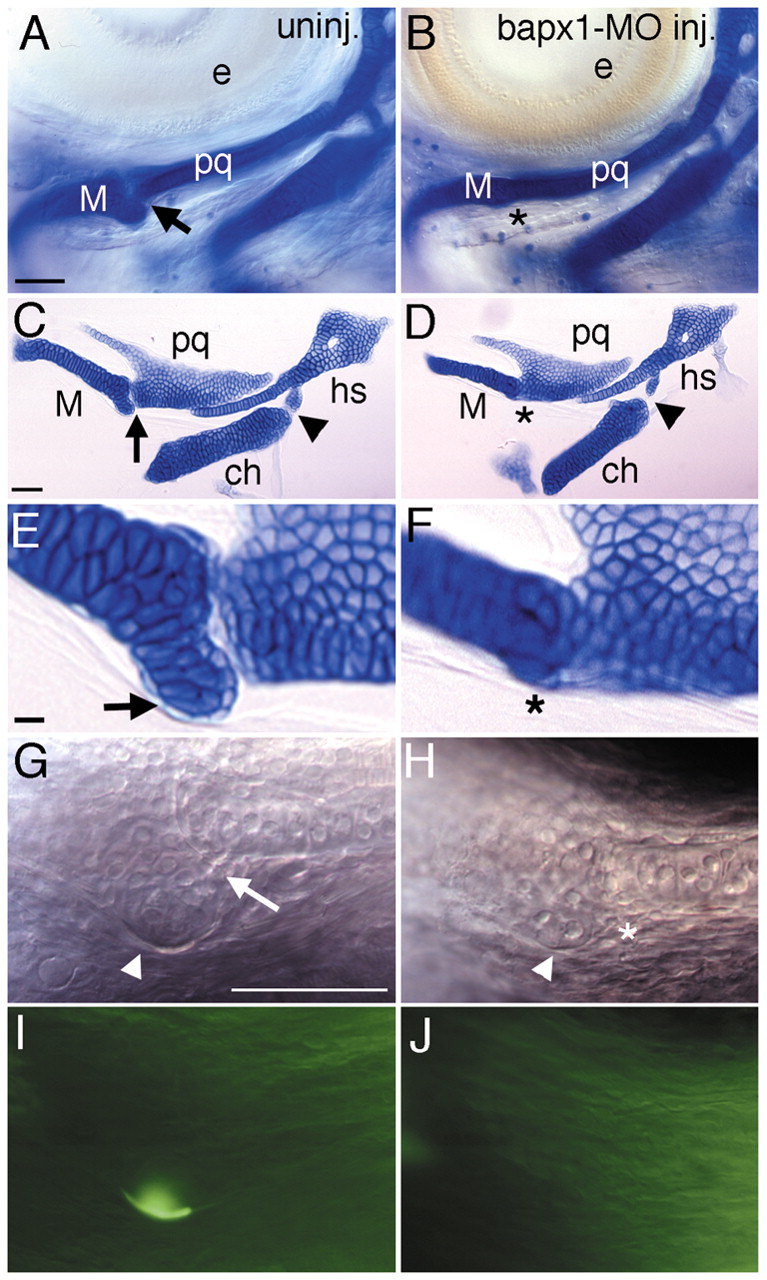Fig. 4 bapx1 is required for patterning the first arch joint region. Lateral views of pharyngeal cartilages (A-H) and bones (I,J) in uninjected (A,C,E,G,I) and bapx1-MO-injected (B,D,F,H,J) larvae. Wholemounted (A,B) and flat-mounted (C-F) Alcian Green-stained pharyngeal cartilages in animals at 4 days. The first arch joint (arrow in A,C) is eliminated upon bapx1 downregulation (asterisk in B,D), whereas the second arch joint is unaffected (arrowheads in C,D). Panel D is a montage of two Nomarski focal planes of the same flatmount preparation. (E,F) Higher magnification of jaw joint region showing retroarticular process (RAP) (arrow in E) is severely reduced (asterisk in F) in bapx1-MO-injected animals. (G,H) Nomarski images of live animals revealing that the jaw joint (arrow) is missing (asterisk) and the RAP of Meckel′s cartilage (arrowhead) is reduced in bapx1-MO-injected animals. (I,J) Fluorescent images of the same fish as in G,H stained with calcein, which fluorescently labels calcified bone. In uninjected animals, the retroarticular bone (RAB) has formed on the RAP of Meckel′s cartilage, and this bone is missing in bapx1-MO-injected animals. The second branchiostegal ray (BSR2) (C. B. K., unpublished), a bone that normally forms slightly later than RAB, was actually more frequently observed in bapx1-MO-injected animals (95/121 or 79% of injected animals had BSR2, whereas 29/52 or 56% of uninjected siblings had BSR2). This indicates that the loss of RAB is specific and not a result of developmental delay. ch, ceratohyal; e, eye; hs, hyosymplectic; m, Meckel′s; pq, palatoquadrate. Scale bars: 50 μm for all except (E,F): 10 μm.
Image
Figure Caption
Figure Data
Acknowledgments
This image is the copyrighted work of the attributed author or publisher, and
ZFIN has permission only to display this image to its users.
Additional permissions should be obtained from the applicable author or publisher of the image.
Full text @ Development

